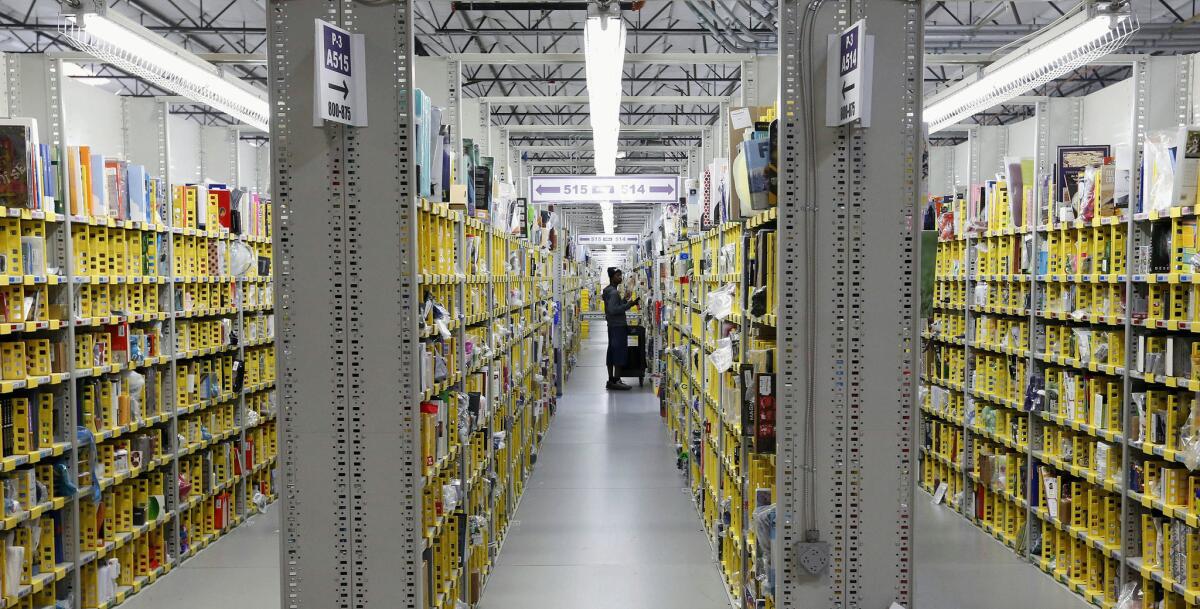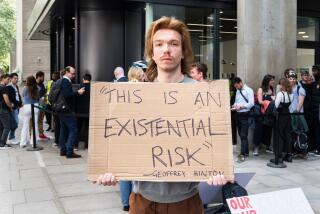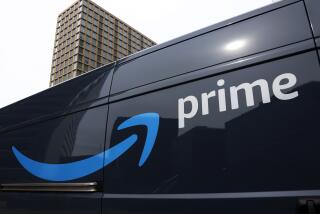Amazon and Hachette: The dispute in 13 easy steps

An unusually public battle is being waged between Amazon and one of America’s top five publishers, Hachette. Why the rancor? Here’s what you need to know.
1. What is Hachette?
Although Hachette publishes about 1,000 books a year, you’ve probably never heard of the company. Publishers are notoriously awful at branding, and Hachette, like the other four major publishers, is a conglomeration of imprints with different identities. Those imprints include Grand Central, Orbit, Hyperion and Little, Brown. Although you may not recognize those names either, you certainly will recognize some of the writers they publish.
2. Who do they publish?
James Patterson, David Foster Wallace, David Sedaris, Janet Fitch, Michael Connelly, Sherman Alexie, Scott Turow, Malcolm Gladwell, Mitch Albom, Iain Banks, Emma Donoghue, Robin Roberts, Brad Meltzer, Mariano Rivera, Marcia Clark, David Baldacci, Jeffrey Deaver, Robert Galbraith (pen name of J.K. Rowling) and many, many more.
3. What’s the conflict between Amazon and Hachette about?
Although parties aren’t disclosing the details, the specific argument is understood to be about e-book pricing, both retail and wholesale. The larger conflict is about the publishing ecosystem and Amazon’s role in it.
4. Is it really that big a deal?
Yes. Author John Green, whose book “The Fault in Our Stars” (not published by Hachette) is currently Amazon’s No. 1 bestseller, explained Monday, “What’s ultimately at stake is whether Amazon is going to be able to freely and permanently bully publishers into eventual nonexistence.”
5. How is Amazon bullying Hachette?
Amazon is subjecting many books from Hachette to artificial purchase delays. Books that had been available for next-day delivery now take 2-5 weeks to ship. Some titles don’t surface in search as they should. And upcoming Hachette books, including the next J.K. Rowling/Robert Galbraith mystery “The Silkworm,” are no longer available for pre-order. As a result, Hachette will sell fewer books.
6. What does Amazon say about it?
Amazon has not commented to The Times regarding this dispute other than to point us to a message-board posting in the Kindle discussion forums on its site. There, it explained that Hachette was one of its 70,000 suppliers and that the two had been unable to reach acceptable terms (without disclosing what was being negotiated).
7. If Hachette is one of 70,000 suppliers to Amazon, what is Amazon to Hachette?
Amazon is the single biggest book retailer in America: It sells 41% of all new books that are sold. Not just Hachette books, but all new books: those from the other four major publishers, all independent publishers, and self-published books, both e-book and print.
8. I heard Amazon told book buyers to shop for Hachette books elsewhere.
That’s true. In part, Amazon’s message board statement reads, “If you do need one of the affected titles quickly, we regret the inconvenience and encourage you to purchase a new or used version from one of our third-party sellers or from one of our competitors.”
9. Where else would people go?
Barnes & Noble has 600 stores and its website; there are more than 2,000 independent booksellers nationwide; other retailers include Apple, Google and Kobo. Several, including Wal-Mart, Books-A-Million, Barnes & Noble and the e-book retailer Zola have set up special deals on Hachette titles to lure customers.
10. Why is Amazon doing this to Hachette now?
In the Apple e-book case brought by the Department of Justice, publishers were accused of colluding over e-book prices; all settled. The judge’s final order in the case, issued in 2013, laid out a schedule for the various publishers involved to renegotiate e-book prices with retailers, Apple and Amazon both. Hachette is up first.
11. What does it mean for Hachette authors?
While many authors complain privately, few are willing to publicly share their concerns for fear of getting on Amazon’s bad side. Two marquee-level authors who have are James Patterson and Malcolm Gladwell.
Gladwell told the New York Times: “It’s sort of heartbreaking when your partner turns on you. Over the past 15 years, I have sold millions of dollars’ worth of books on Amazon, which means I have made millions of dollars for Amazon. I would have thought I was one of their best assets. I thought we were partners in a business that has done well. This seems an odd way to treat someone who has made you millions of dollars.”
Patterson at a major address at last week’s Book Expo, the annual publishing conference: “Right now bookstores, libraries, authors, publishers and books themselves are caught in the crossfire of an economic war between publishers and online providers. To be a teeny, tiny bit more specific, Amazon seems to be out to control shopping in this country. This will ultimately have an effect on every grocery- and department-store chain, on every big-box store, and ultimately it will put thousands of mom-and-pop stores out of business. It just will, and I don’t see anybody writing about it, but that certainly sounds like the beginning of a monopoly to me. Amazon also, as you know, wants to control book selling, book buying and even book publishing, and that is a national tragedy.”
12. What is to be done?
Some people are walking away from Amazon as a retailer because of its dispute with Hachette.
13. If I’ve never heard of Hachette, should I care about this brouhaha?
If you like reading books by people like John Green, yes. Here’s how he puts it: “The breadth of American literature and the quality of American literature is in no small part due to the work that publishers do, and it’s very unfortunate, in my opinion, to see Amazon refuse to acknowledge the importance of that partnership.”
More to Read
Sign up for our Book Club newsletter
Get the latest news, events and more from the Los Angeles Times Book Club, and help us get L.A. reading and talking.
You may occasionally receive promotional content from the Los Angeles Times.







